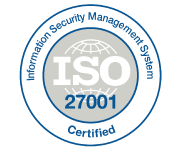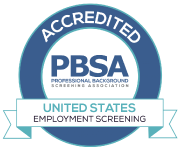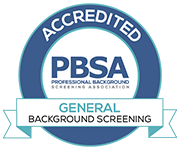See What's Trending: ISB Insights
PIPEDA Best Practices: Consent and Recordkeeping
 As Canadian workplaces become increasingly data-driven, employers must ensure they handle employee information in compliance with applicable laws such as the Personal Information Protection and Electronic Documents Act (PIPEDA) or any Province Privacy laws.
As Canadian workplaces become increasingly data-driven, employers must ensure they handle employee information in compliance with applicable laws such as the Personal Information Protection and Electronic Documents Act (PIPEDA) or any Province Privacy laws.
Privacy laws govern how private-sector organizations collect, use, and disclose personal information during commercial activities, and it’s vital for ISB Global Services’ clients to work with their own legal counsel to ensure that they are compliant with all applicable laws and regulations. Although ISB Global Services and its representatives are not legal counsel for our clients and nothing in this article should be deemed as legal advice, our goal is to explain the industry’s best practices for our clients to determine what is best for them.
For this discuss, we will only be talking about PIPEDA and not any provincial laws in Alberta, British Columbia, and Quebec that our clients might also be subjected to be compliant with.
Two of the most critical areas for employers under PIPEDA are obtaining meaningful consent and maintaining robust recordkeeping practices. Here’s what you need to know.
 Understanding Consent Under PIPEDA
Understanding Consent Under PIPEDA
Consent is a cornerstone of PIPEDA. Employers must obtain an individual’s knowledge and agreement before collecting or using their personal information—unless an exception applies.
Types of Consent
Express (explicit) consent is required when:
- The information is sensitive.
- The use or disclosure is beyond the employee’s reasonable expectations.
- There is a risk of significant harm if the information is misused.
Implied consent may be acceptable when:
- The information is less sensitive.
- The purpose is obvious and directly related to the employment relationship (e.g., processing payroll).
Best Practices for Consent
- Clearly explain the purpose of data collection in plain language.
- Use written or digital consent forms.
- Allow employees to ask questions and withdraw consent where appropriate.
- Review consent regularly, especially when the purpose of data use changes.
 Recordkeeping Responsibilities
Recordkeeping Responsibilities
Employers should demonstrate accountability by keeping detailed records of how they manage personal information. This includes:
1. Purpose Documentation
- Clearly identify and document why personal information is being collected.
- Ensure the purpose is legitimate and limited to what is necessary.
2. Consent Records
- Maintain signed consent forms or digital logs showing when and how consent was obtained.
- Record any changes to consent or withdrawals.
3. Retention and Disposal
- Keep personal information only as long as necessary for the identified purpose.
- Establish and follow a retention schedule.
- Securely destroy or anonymize data when it is no longer needed.
4. Access Logs
- Track who accesses employee data and when.
- Limit access to only those who need it for legitimate business purposes.
5. Safeguards
- Document the physical, technical, and administrative safeguards in place to protect personal information.
 Additional Employer Obligations
Additional Employer Obligations
- Transparency: Provide employees with access to your privacy policy and explain their rights under PIPEDA.
- Access Requests: Be prepared to respond to employee requests to access or correct their personal information.
- Training: Ensure HR and management staff are trained on privacy obligations and best practices.
Conclusion: Building a Privacy-Respecting Workplace
By embedding privacy into your HR and data management practices, you not only comply with PIPEDA but also build trust with your employees. Clear consent processes and strong recordkeeping are not just legal requirements—they’re essential components of ethical and responsible business operations.







While we are not affiliated with or employed by these organizations, we may reference our verified status in marketing materials, proposals, and client communications to demonstrate ISB’s commitment to compliance and security.